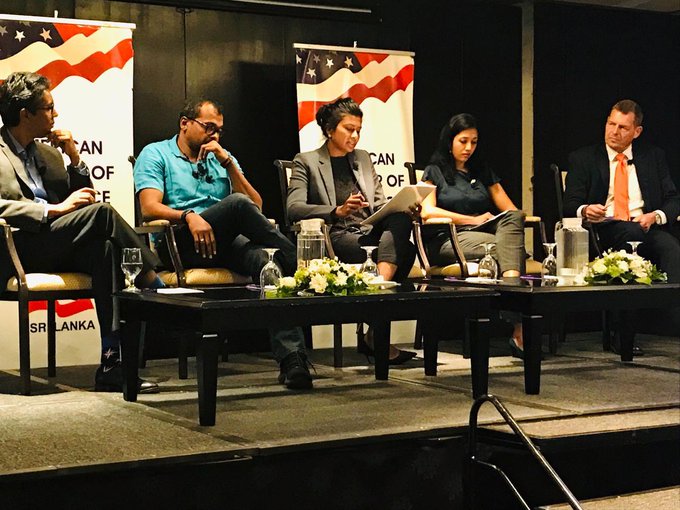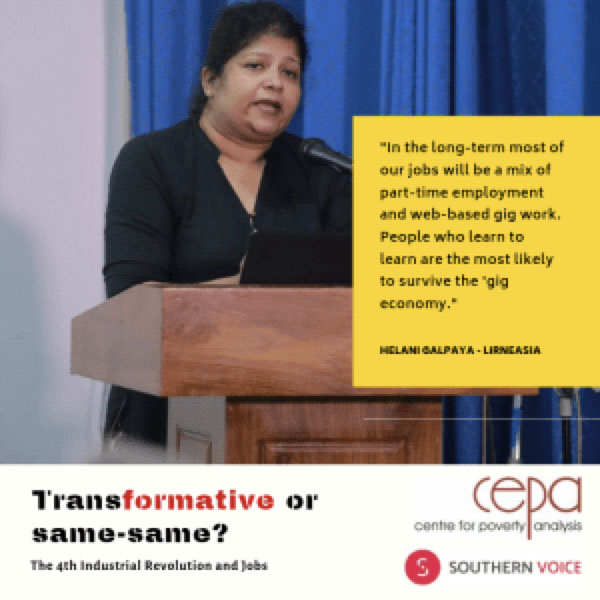Future of Work and Workers
Following our first exploration of online freelancing or platform work in Sri Lanka in 2016, we’ve expanded the work by looking at more countries (Myanmar, India, Bangladesh, Pakistan, Nepal and Cambodia) and by digging deeper into specific issues (competition, labor automation, conditions of work, worker rights, analog complements, social perceptions etc.). We now have a large body of research, which we have disseminated through country-specific channels and at global forums.

Ramathi and Tahani went back to the transcripts from our qualitative work in India and Sri Lanka to and produced a paper titled “Now we are independent: Female online freelancers in India and Sri Lanka,” which builds on the previous work done by Helani, Laleema and Haran. The paper was submitted to and accepted by the 3rd International Conference on Gender Research, which was to be held in Reading, UK in April 2020, but will instead be a virtual conference held in July 2020 due to the COVID-19 pandemic. The paper was also published in the conference proceedings.
Tahani also shared the findings at an AMCHAM hosted program on “Modern workplaces” in August 2019, as a panelist at a session on “The gig economy and flexible workplaces”.
In September 2019, the Center for Poverty Analysis hosted an open forum on 4IR and jobs “Transformative or same-same?”, where Helani presented our research on online freelancing from Sri Lanka, India and Myanmar. At the event, she emphasized our stand, that platform work remains precarious for those unable to constantly upskill because prices are being driven down, yet remains a really important income source and a solution to underemployment in Sri Lanka.
Ramathi also presented takes on both the precariousness of platform-mediated work and the regulation of platforms on our blog.

Much of the fears around the automation of jobs are based on data about jobs and workers in the US and Europe. Hardly any of the predictive models have been attempted with data from Asia. We decided to try. Unfortunately, Vignesh’s deep dive into Indian labor data showed that while some level of analysis is possible, data from our region – even a country like India – is not detailed enough to do the kind of modelling that others have done. What this points to, is the need for better data, which governments must collect and make public.
In the absence of data, we also tried other avenues. In December 2020, Merl negotiated and began analyzing data from popular job boards in Sri Lanka to identify the ground truth with respect to the skills demanded by Sri Lankan employers. As a part of this project, we hope to develop a publicly available tool that can be used to monitor jobs markets at scale, to identify shifts in demand and transversal skills for a wide variety of work situations.
Following the March 2019 launch of the Future of Work in Sri Lanka report by the International Labour Organization (which drew from our previous writings on platform work), TANDEM Research developed issue briefs on two “bright spots” for Sri Lanka. We were invited to a closed-door session in December 2019 where Ramathi engaged on these “bright spots” (tourism and green jobs) towards a roadmap and strategy to prepare Sri Lanka’s workforce for the future of work.